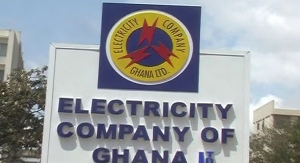Since we introduced our public education campaign nearly a year ago, we have received feedback from many well-wishers and frequent readers. One piece of advice that seems to recur frequently is “following up” on themes and issues we raise. A few respondents have been even harsher, calling our approach, “disjointed”.
There clearly is some substance to such criticisms. We have been using the well tested report format to keep citizenry informed about some of the issues closest to their lives. In the past half-year, we have described the NHIS capital structure as unsustainable; we have painted the current energy situation as a “chronic crisis” and hinted that many of our banks are hiding toxic underbellies, glitter notwithstanding.
But nearly every one of our conclusions was reached by mixing several trends and perspectives. People have justifiably asked whether we couldn’t find a way to follow these trends in a manner that is more dynamic, reader-friendly, responsive, and one that does not require recipients to wade through bi-monthly 10-page reports.
In response, we are launching our rapid-pace “Red Flag Alert” service. These brief “public memos” will bring developing stories and emerging trends related to our focus areas to the convenience of our readers’ mailboxes and, hopefully, the pages of our Partner online and offline media organizations. Below, our first alert follows.
>>>> Oil & Gas
The news from Uganda is that Tullow Oil, after hyping the Lake Albert Basin find for many years and ratcheting up expectations in Uganda about imminent oil windfalls and massive production levels, has burst the bubble by announcing a pushback of the production timeline and reducing production volume forecasts. Instead of a production outturn of 4000 – 5000 barrels this year, the current estimate is 500 barrels per day from “late next year” to increase to 2000 barrels in about 3 years. Genuinely significant production – 100,000 to 150,000 – will be attained “within 10 years”.
It is not clear where this leaves the Uganda government’s rather grandiose dreams of a substantial expansion in domestic thermal power capacity and petroleum import-substitution.
You may be wondering why mid-cap oil exploration companies like Tullow and Kosmos generate such hype around finds when they know results will always catch up with them. Simply put, that is the market culture. Companies of that size do not have the money to engage the sophisticated lobbyists and public relations experts in the Covent and Madison Gardens, on both sides of the Atlantic, and are better off just flooding the newswires with their own press statements, singing their own praises.
By the time the market get tired of the inflated enthusiasm, the companies would have pumped their balance sheets full of juice and, on that basis, secured juicy financing to develop their finds. As every manager knows, you can always give the middle finger to secondary trading if your board is on your side.
Anyway, Tullow’s Boss, Aidan Heavey, pocketed a smooth 34 million sterling ($52 million) compensation package last year –making the Supremo the highest paid Chief Executive in Ireland. Expect him to add another Lamborghini to his pool?. Compliments of IMANI - Ghana, your friendly local think-tank
Opinions of Sunday, 26 April 2009
Columnist: Imani Ghana






![The suspect, Daniel Tuffuor [L] and deceased Yobani Deladem Aku The suspect, Daniel Tuffuor [L] and deceased Yobani Deladem Aku](https://cdn.ghanaweb.com/imagelib/pics/404/40485450.295.jpg)











